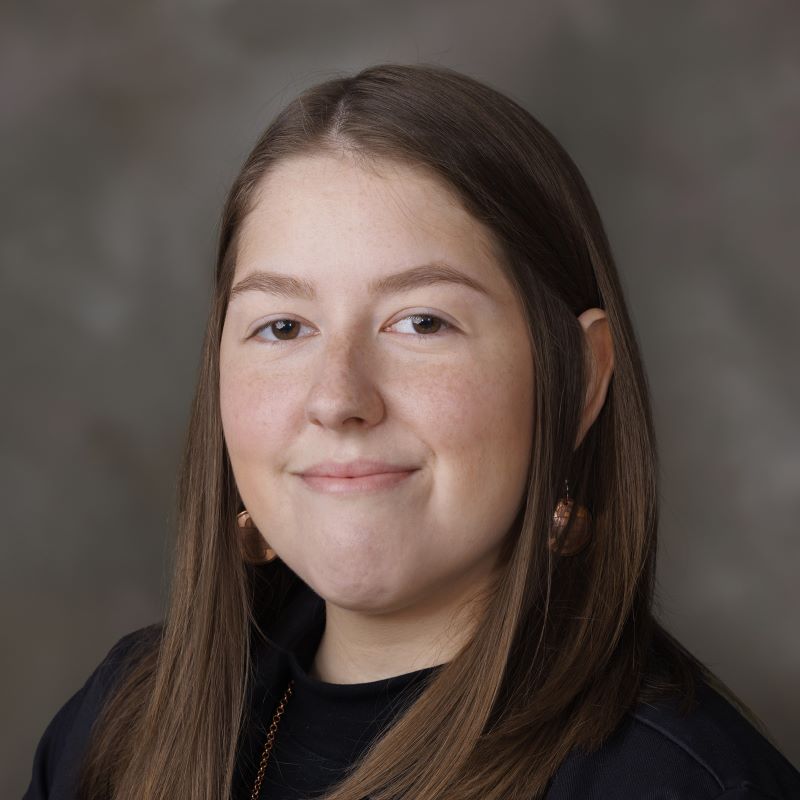
Dr. Liahnna Stanley (LEE-ah-na STAN-lee, pronouns: they/she) is Mvskoke (Poarch Band of Creek Indians) from lower Alabama. Liahnna is an Assistant Professor jointly appointed to the Department of Communication Studies and the Institute for Ethnic Studies (Indigenous Studies Program). Liahnna is a critical/cultural and rhetorical scholar-pedagogue who engages indigeneity as an anticolonial praxis to interrogate the persistent impacts of colonialism and imperialism and their undoing and unbecoming. Their research and pedagogy are grounded in Indigenous territorial-based frameworks of relationship and responsibility to land, water, and kin beyond mapped productions of space and time.
In addition to various scholarly anthologies, Liahnna’s work can be found in journals such as Review of Communication, Journal of Applied Communication Research, Communication Education, and QED: A Journal in GLBTQ Worldmaking. Their current research coils up and around three interdisciplinary points of focus: (a) Indigenous speculative fiction literatures, (b) Mvskoke spatial rhetorics, and (c) placing critical Indigenous Communication studies. Alongside other academic and community commitments, Liahnna serves as a Member of the Leadership Circle (Ogimaa) for the Indigenous Caucus at the National Communication Association and represents the Caucus on the IDEA (Inclusion, Diversity, Equity, Accessibility) Council of the same association.
Representative Publications
Brandley, ben, and B. Liahnna Stanley. “Muddying the Pioneer Past-Present: Indigenous Erasure and Settler Colonial Memory at Mormon Historic Sites.” Rhetoric, Politics, and Culture (in press).
Stanley, B. Liahnna. “Fanning the Flames: Indigenous Monstrosity and (De)Colonial Unintelligibility.” In Settler Colonialism and Intercultural Communication, edited by Santhosh Chandrashekar and Bernadette M. Calafell. Peter Lang, in press.
Stanley, B. Liahnna. “Pubic Scarves and Earthworm Sex: Storying Indigenous Eroticisms for Sovereign Relations and Futures.” Review of Communication 22, no. 4 (2023): 351–63. https://doi.org/10.1080/15358593.2022.2136502.
LeMaster, Lore/tta, Meggie Mapes, B. Liahnna Stanley, Angela Labador, Ana Isabel Terminel Iberri, Megan Stephenson, and Tyler S. Rife. “Against the Grain.” Communication Education 71, no. 3 (2022): 165–87. https://doi.org/10.1080/03634523.2022.2070921.
The Cacophiliacs. “(De)Composing Ecological Futurities: Insurgent Worldmaking at the End of a World.” QED: A Journal in GLBTQ Worldmaking 8, no. 1 (2021): 131–45. https://www.muse.jhu.edu/article/801976. “The Cacophiliacs” is a writing collective that performs a political means of co-authoring scholarship against hierarchical order and includes Angela Labador, Lore/tta LeMaster, Tyler S. Rife, B. Liahnna Stanley, Megan Stephenson, and Ana Isabel Terminel Iberri.
Stanley, B. Liahnna, and Ambar Basu. “‘Chemical Jail’: Culture-Centered Theorizing of Carcerality in Methadone Maintenance Treatment and Addiction Recovery in the United States.” Journal of Applied Communication Research (2023): 1–18. https://doi.org/10.1080/00909882.2023.2180770.
Teaching
Please email Liahnna with questions about these courses.
Graduate
- COMM 965: Indigenous Communication (course proposal under review)
Undergraduate
- COMM 311/ETHN 311: Intercultural and Intergroup Communication
- COMM 365/ETHN 365: Indigenous Communication (course proposal under review)
- ETHN 201: Introduction to Indigenous Studies